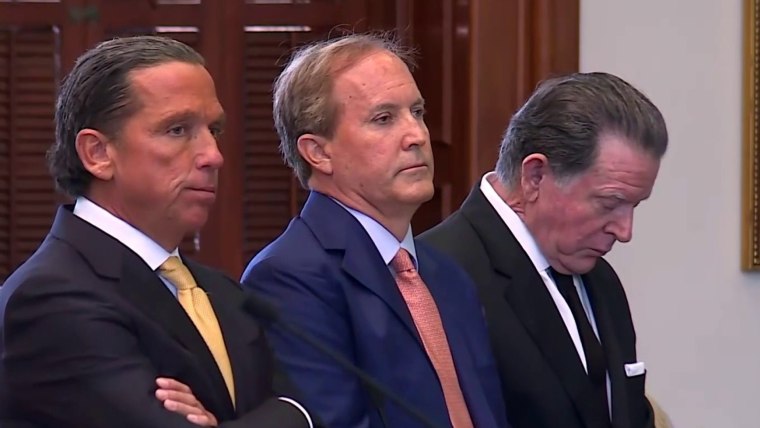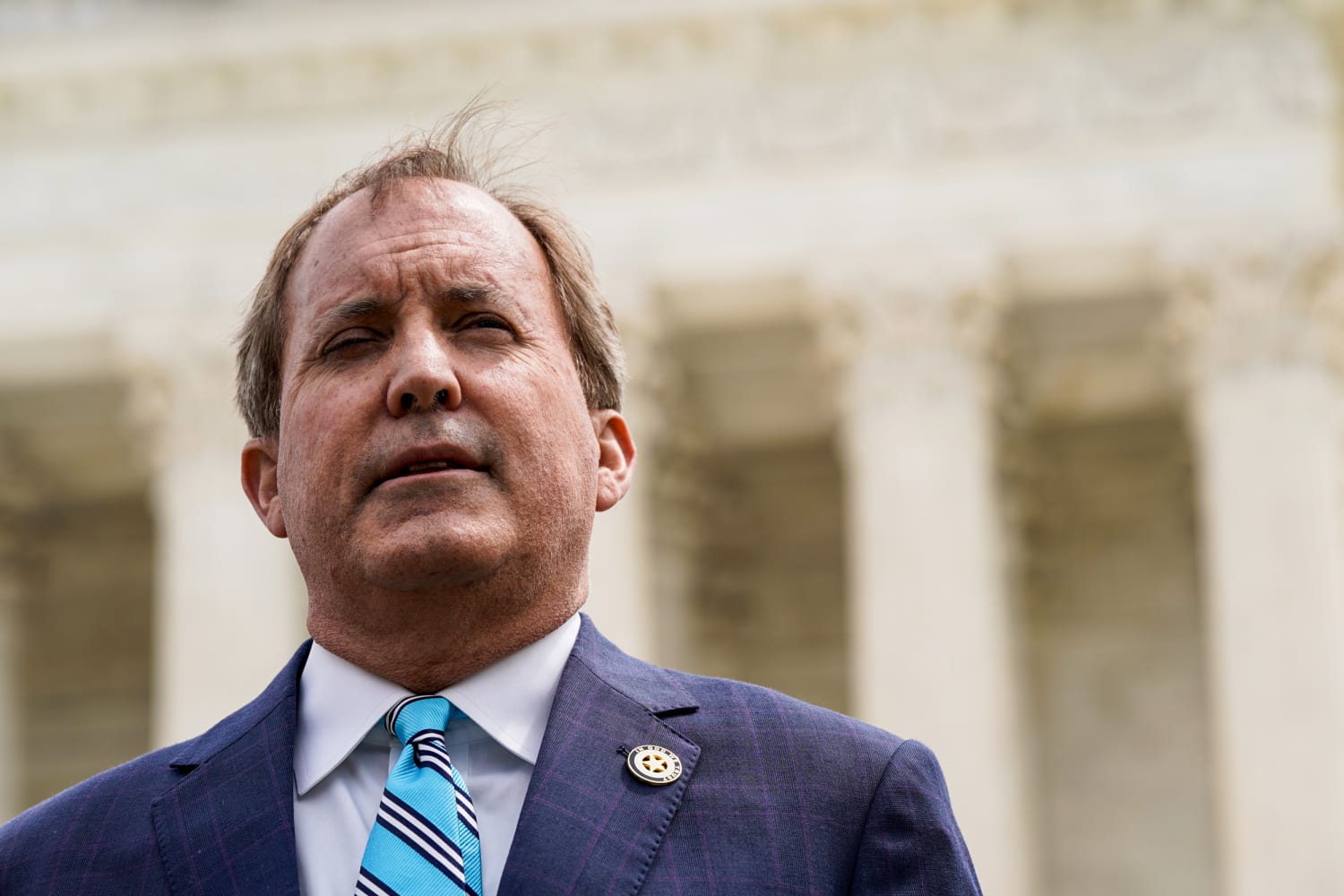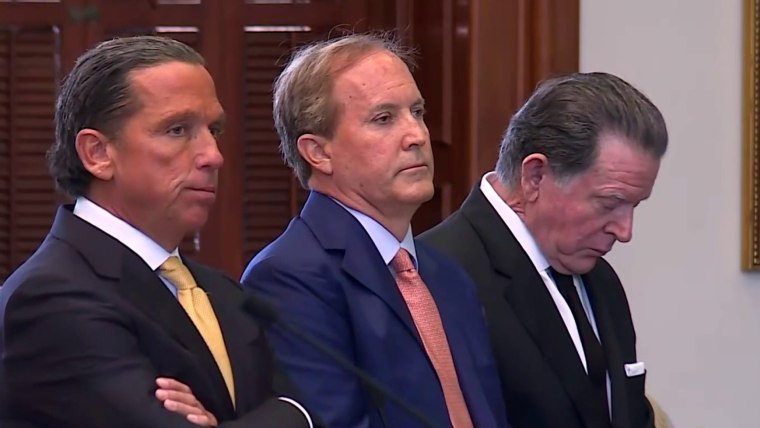Jury deliberations began in Texas Attorney General Ken Paxton’s impeachment trial Friday, as the lawmakers left the Senate chamber to debate whether to convict and remove the state’s top law enforcement agent on charges of corruption and abuse of office.
The senators-turned-jurors have heard nearly two weeks of arguments and witness questioning. At times, the sworn testimony was emotional, as former senior aides describe their concern and alarm over the Republican attorney general’s actions; some said they were heartbroken; one cried on the stand, another was openly angry.
Paxton’s future lies in the hands of 18 Republican senators, half of whom would need to vote with all of the chamber’s 12 Democrats for the attorney general to be convicted, removing him from office. Behind closed doors, experts and former Texas state lawmakers say, those Republican members will have a lot to consider: Paxton’s alleged wrongdoing, their careers as lawmakers and even the future of their own party.
“If you try to handicap what the outcome of this is going to be without considering the politics that the jury is subjected to and how complicated they are, you’re not able to really predict what’s going to go on,” said Jim Henson, director of the Texas Politics Project at the University of Texas at Austin, who has watched the trial closely.
Paxton’s allies have promised to punish Republicans who vote against him in the impeachment process, as the trial drags long-simmering tension between the Republican Party’s farthest-right flank, which includes Paxton, and the rest of the party into the spotlight.
The Defend Texas Liberty PAC, a group with the financial backing of energy billionaires Tim Dunn and Farris Wilks, has promised moneyed challengers to Republicans who vote against Paxton.
Primaries are the chief political threat to GOP lawmakers in Texas, as they’re all largely running in safe districts thanks to a recent round of redistricting.
“We’re getting to see it in real time: the conflict and the different ideological stances that the Republican Party has,” Matt Langston, a Republican strategist who works in Texas, said last week.
In the trial, witnesses have been asked if they are a “RINO” and to rank their conservatism on a scale of one through 10.
“Eleven,” said Austin Kinghorn, a senior attorney in the Office of the Attorney General, on Thursday.
That tension over who is conservative enough is why former Texas Sen. Bob Deuell said he expects Paxton will be acquitted.
“I just don’t think a majority of Republican senators are strong enough to vote to impeach him — if that’s what they feel is merited — because they’re just afraid of the wrath of the extreme right wing of the Republican Party,” he said.
(Dunn and Wilks, the energy billionaires, helped bankroll the primary challenger, Republican state Sen. Bob Hall, who ousted Deuell in 2014.)
On the final day of the trial, Paxton’s attorneys — who had broadly avoided nationalizing the issue or talking politics during the trial — spoke about the party tension.
“This is not a criminal trial, this is a political trial. I would suggest to you this is a political witch hunt. I would suggest to you that this trial has displayed for the country to see a partisan fight within the Republican Party,” said Paxton attorney Tony Buzbee in his closing statement. “Let’s just call it for what it is. That’s what we’re seeing here it’s being played out on TVs across the country there is a battle for power.”
The senators will now deliberate until they come to a decision.
“No off days,” said Lt. Gov. Dan Patrick, the president of the Senate who presided over the trial as a judge, earlier this week.
Ultimately, ex-lawmakers and experts said, until voters weigh in in future elections, the effects of the impeachment trial and how senators vote are unknown.
“This is the great thing about this trial,” Langston said. “There’s no playbook for this.”
Source: | This article originally belongs to Nbcnews.com











